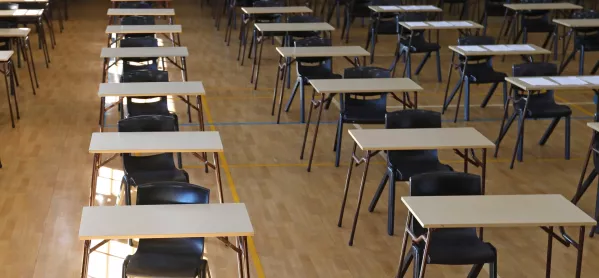GCSE and A-level grades should be set regionally this summer according to the different levels of Covid disruption in schools, Labour has suggested.
The call came from shadow education secretary Kate Green, who told Tes that when it came to awarding their results, students in badly hit regions should get the same kind of “special consideration” given to candidates with long-term illness.
She said that the learning loss caused by the pandemic meant “there needs to be some sort of regional dimension to the way that the results are norm-referenced” for next year’s exams.
Her comments come on the morning that a Tes investigation reveals huge regional disparities in how Covid has hit schools this term. Figures range from the 94 per cent of schools with cases in Middlesbrough, down to just 6 per cent in the Isle of Wight.
Exclusive: One in three schools hit by Covid this term
Exams: Ofqual looking at multiple choice and mocks
More: Results will be a ‘challenge’ warn boards
GCSEs and A levels 2021: ‘Dismay’ at ‘weak’ DfE plan
In an exclusive interview with Tes, Ms Green also called for “reserve papers” for pupils who are self-isolating or ill on the day of an exam - so they can sit the exam at a later date.
And the shadow education secretary called for greater “optionality” for candidates who haven’t covered the whole curriculum so they can still be examined on the parts of the curriculum they have studied.
She said: “We do need to recognise regional variants in the learning experience that students have had this year - for example, in parts of the North West, we have seen very low attendance rates in schools.
“So we’ve suggested that there needs to be some sort of regional dimension to the way that the results are norm-referenced, if you like, and that there should be proper consultation with local and regional governments in making sure the system is robust and fair to all students.”
She added: “It might be the way you moderate the results. This is not completely unknown in the exam world. After all, you get that kind of contextualising where you’re dealing with long-term sickness for a student, for example.”
‘Special consideration’
Students with long-term sickness may be considered for “special consideration” in the way their exams are marked, according to the JCQ (Joint Council for Qualifications), which states that “an adjustment may be made to the terminal grade” subject to certain conditions.
The same consideration can also be given to candidates who have suffered a bereavement, domestic crisis or are participating in sporting events at an international level.
Ms Green outlined her proposals in a letter to education secretary Gavin Williamson this week.
A Department for Education spokesperson said: “Exams are the fairest way of judging a student’s performance, which is why Ofqual and the government all agree they should go ahead next year.
“We are working closely with stakeholders on the measures needed to ensure exams can be held and will set out plans over the coming weeks.”
A spokesperson for exam regulator Ofqual said: “We are continuing to discuss contingency options for all likely scenarios with school and college leaders, and other stakeholders. We will provide advice to the government before it determines and confirms contingency arrangements for 2021 with the sector this month.
“We are also considering ways in which we can make the prospect of exams a little less daunting for students, as we recognise they will have missed out on some teaching and learning and know this varies by individual, school, college and region of the country.”
The JCQ guidance also states that where “long term circumstances” have prevented a candidate from reaching the competence standards, it may not be possible to make an adjustment.





